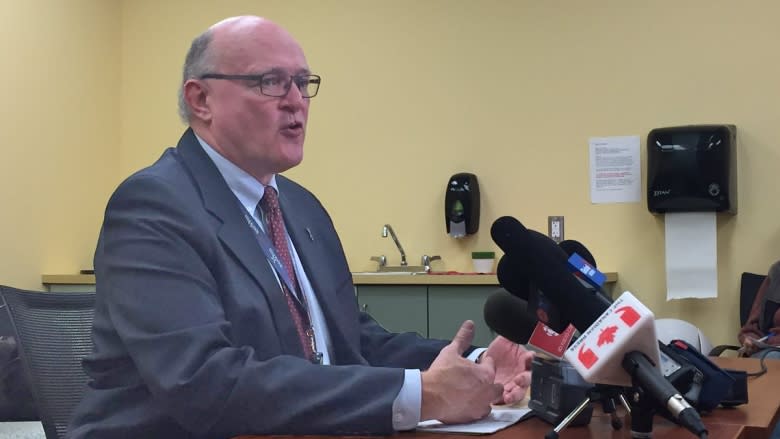Nova Scotia officials meet at opioid strategy summit
A summit bringing together health and justice government officials, police forces, and professional associations for doctors, nurses, and paramedics met Friday to develop Nova Scotia's first comprehensive response to the opioid problem.
Deaths from overdoses of opioids is a long-standing problem in Nova Scotia and has already killed 49 Nova Scotians so far this year — a death every six days.
About 20 groups came together to discuss the problem. Meeting chair Dr. Robert Strang, the province's chief public health officer, said the summit was effective in helping understand the problem facing Nova Scotia.
Bracing for illicit fentanyl increase
The health and justice departments called the meeting to develop a comprehensive health, justice and policing response to the opioid problem as they brace for an increase in illicit fentanyl.
"The potential here is very serious in Nova Scotia, so what we're doing is putting a plan in place to minimize that as much as possible," said Strang.
The plan has seven components: data collection and monitoring, health promotion for youth in schools and people on the street, harm reduction, sustaining access to overdose prevention drug naloxone, opioid addiction treatment, improving prescription monitoring and beginning to consider a model for drug courts.
Strang will attend the federal opioid summit next month in Ottawa.
'Almost as bad as B.C.'
"There's always going to be some people who seek and use illicit drugs, and there's always going to be some organized crime that's providing that," Strang said.
"Our plan is to put in place the steps necessary to do as best as we can to help people who are in the midst of drug addiction."
Dr. David Milne, an anaesthetist in Halifax and past president of Doctors Nova Scotia, was also at the meeting. He said the number of overdose deaths is "striking."
"If we're seeing 49 people who have overdosed, and 11 people who have had rescue from Narcan [naloxone], based on a per capita basis, that's almost as bad as B.C., it's almost as bad as Alberta," Milne said.
Opioid strategies
Earlier this month, the Ontario government announced its "first comprehensive opioid strategy." Opioid overdoses are the third leading cause of accidental death in that province and fentanyl has been the leading cause of opioid-related deaths for the last two years.
In British Columbia, the escalating death toll from fentanyl has prompted officials to declare a public health emergency this year. The B.C. government has struck a task force to address the crisis.



